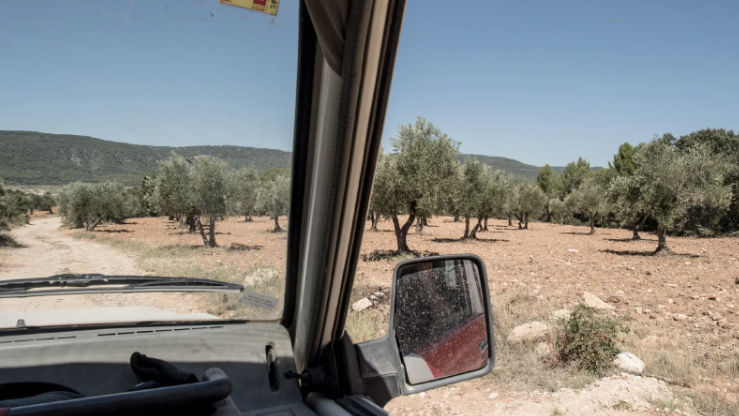Climate change is coming for your olive oil, too. Heatflation has doubled the price of olive oil over the past year.
Inflation is finally easing. Americans are paying less for gas than they were a year ago. Furniture, television, and airfare prices have all fallen since last summer. Even the used car market is cooling off after its meteoric rise. But one unsuspecting staple in many American kitchens has become a prominent outlier: olive oil. The price of the already pricey liquid fat has soared to a record high this summer.
It’s the latest chapter in the annals of heatflation, when scorching temperatures harm crops and push food prices up. A yearlong drought and a spring of extreme heat in Spain, the world’s largest olive oil producer, devastated the country’s olive groves.
Spanish olive oil production fell by a half — from an estimated 1.3 million to 610,000 metric tons — over the past year. Now fears are mounting over the very real possibility that the country’s inventory will run out before the next harvest begins, in October.
Climate change is coming for your olive oil, too
“For Spaniards, this is a real crisis,” Bloomberg columnist Javier Bias recently wrote. “We generously coat our food in olive oil.”
It’s also a big deal for the rest of us, given that something like half of the world’s olive oil comes from Spain. As barrels run dry, cooks around the world are paying an almost unheard of premium for the nutty, liquid gold that makes lettuce more palatable and bread more nutritious. Worldwide, olive oil now costs $8,600 per metric ton, more than twice as much as it did a year ago and nearly 14 times more than crude oil. (It would set you back around $720 to fill up the typical car’s 12-gallon tank with olive oil found on Amazon.)
What’s happening is “not normal at all,” said Kyle Holland, a vegetable oils analyst at Mintec, a food market research firm. “It was just too hot and too dry for too long.”
Read more at grist.org
Photo: grist.org


Leave a Reply